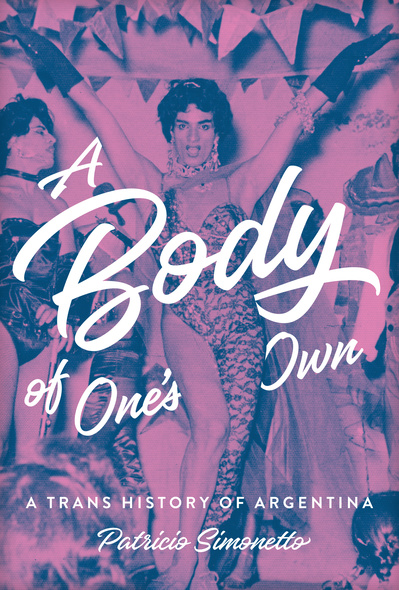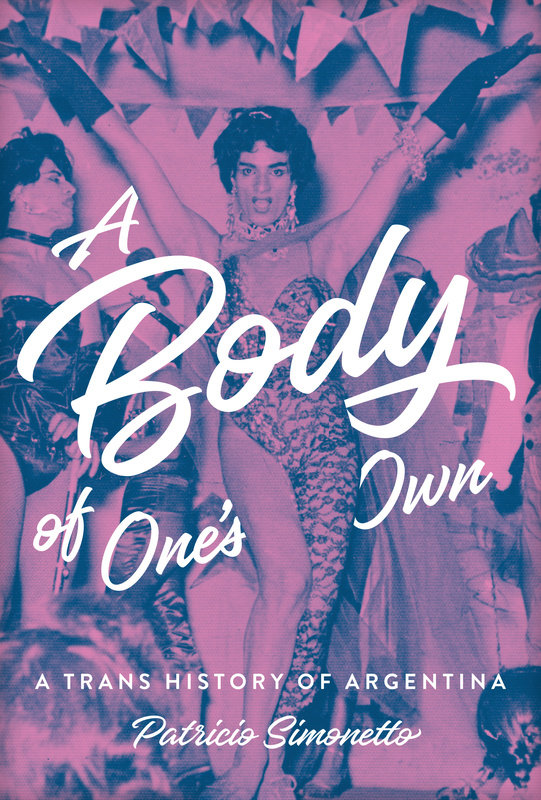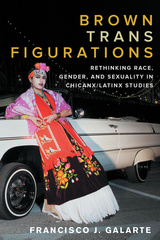A history of Argentina that examines how trans bodies were understood, policed, and shaped in a country that banned medically assisted gender affirmation practices and punished trans lives.
As a trans history of Argentina, a country that banned medically assisted gender affirmation practices and punished trans lives, A Body of One’s Own places the histories of trans bodies at the core of modern Argentinian history. Patricio Simonetto documents the lives of people who crossed the boundaries of gender from the early twentieth century to the present. Based on extensive archival research in public and community-based archives, this book explores the mainstream medical and media portrayals of trans or travesti people, the state policing of gender embodiment, the experiences of those transgressing the boundaries of gender, and the development of homemade technologies from prosthetics to the self-injection of silicone. A Body of One's Own explores how trans activists' challenges to the exclusionary effects of Argentina’s legal, cultural, social, and political cisgender order led to the passage of the Gender Identity Law in 2012. Analyzing the decisive yet overlooked impact of gender transformation in the formation of the nation-state, gender-belonging, and citizenship, this book ultimately shows that supposedly abstract struggles to define the shifting notions of "sex," citizenship, and nationhood are embodied material experiences.
[Simonetto's] archival trawling across the decades is encyclopaedic, and this work will doubtless be a touchstone for scholars in multiple fields, laying a solid foundation for the developing subfield of Trans Latin American History. Future scholars of the history of gender and sexuality in Argentina will have to reckon with this work, and will be better for it . . . [A Body of One's Own] joins other recent US and international monographs in shaping a conversation about past lives and discourses ‘before trans’, which are both archivally grounded and theoretically innovative.
This is a book that deftly engages trans and travesti histories as central to Argentine statecraft and nation-building. Simonetto treats both his archival materials and his interlocutors with depth and care. He draws enthusiastically from a multitude of thinkers, including those working both inside and outside the space of the academy.
Patricio Simonetto’s groundbreaking analysis offers lucid insights on the Argentinean trans experience and the complexities of engaging with a Latin American transgender and travesti archive. Centering trans issues and national discourses, Simonetto bravely engages the epistemic violence of the past as he documents the utopian aspirations and numerous achievements of the present. A Body of One’s Own is a major contribution.
Skillfully researched, A Body of One’s Own is a timely, much-needed history of people crossing gender boundaries that powerfully resonates with the present. By focusing on trans body portrayal and experimentation, Patricio Simonetto offers not only a detailed history of sex change in twentieth-century Argentina, but also a unique perspective on the role of body ownership and gender transgression in nation-building. This is a pioneering, remarkable work that will become indispensable reading for anyone interested in Latin American queer studies.
Patricio Simonetto is a lecturer in gender and social policy at the University of Leeds. He is the author of Entre la injuria y la revolución: El Frente de Liberación Homosexual en la Argentinaand El dinero no es todo: Compra y venta de sexo en la Argentina del siglo XX<. In 2021 he was awarded the Carlos Monsivais Award by the Latin American Studies Association.
- A Note to the Reader
- Introduction. In the Flesh of (National) History
- Chapter 1. Cut from a Different Cloth: Gender Transgressions in the Early Twentieth Century
- Chapter 2. The Body I Was Born In: Governing Sex and Embodiment Repertoires during the Era of the Biomedical Transition
- Chapter 3. Queens in the Theaters and the Streets: The Global Making of Travestis’ Popular Culture and Everyday Technologies
- Chapter 4. Living Laboratories: Travesti/Trans Knowledge and Homemade Technologies
- Chapter 5. The Carnal Revolution: Trans Citizenship and the Limits of Democratic Transition
- Epilogue
- Acknowledgments
- Notes
- Bibliography
- Index








